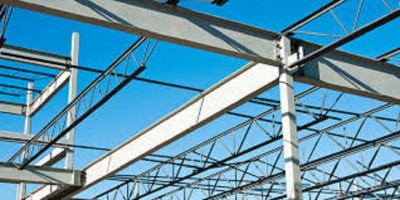The Ultimate Handbook on Personalized Steel Manufacture Solutions for Structural Projects
In the realm of structural tasks, the relevance of custom-made steel fabrication options can not be overstated. From the foundational understanding of steel manufacture essentials to the intricate procedure of picking one of the most suitable materials, every action in this journey plays a pivotal duty in the utmost success of a task. As we browse via the intricacies of design considerations, manufacture procedures, and quality control actions, a thorough handbook works as a directing light for professionals seeking quality in steel construction remedies. Remain tuned to discover the understandings that can change the way structural tasks are approached and executed.
Comprehending Custom-made Steel Fabrication Essentials
Digging into the fundamentals of customized steel construction supplies understanding right into the intricate procedure of transforming raw steel right into tailored architectural elements. Custom steel fabrication is a specific production method that entails cutting, shaping, and constructing steel products to create unique frameworks according to certain job requirements. Understanding the basics of personalized steel manufacture is essential for making certain the effective execution of architectural projects.
The procedure typically begins with the assessment of project specs and layout requirements. This initial phase includes thorough planning and collaboration in between developers, makers, and engineers to establish one of the most suitable technique for fabricating the steel components. Accuracy is essential throughout the fabrication procedure, as even minor inconsistencies can impact the architectural integrity of the end product.
Numerous strategies, such as cutting, welding, and shaping, are used to change raw steel into the preferred architectural elements. Skilled producers make use of innovative equipment and tools to make sure precision and consistency throughout the manufacture process. Quality assurance steps are applied to verify the stability of the made components prior to they are assembled on-site, making sure conformity with market standards and job specifications.
Choosing the Right Steel Products

Firstly, the kind of structural job and its certain demands play a vital function in figuring out one of the most appropriate steel materials. Variables such as the load-bearing ability, ecological conditions, and desired lifespan of the framework will dictate the quality and sort of steel that should be used.
In addition, the physical residential or commercial properties of the steel, including strength, weldability, and ductility, need to align with the task's needs to guarantee optimum performance and durability (Alpha reo). In addition, considerations such as deterioration resistance, cost-effectiveness, and availability of the steel materials should additionally be considered throughout the option process
Layout Considerations for Architectural Jobs
Structural jobs demand careful attention to develop factors to consider to guarantee both capability and security are prioritized throughout the building procedure. When it comes to developing architectural projects, a number of vital aspects should be taken right into account to ensure the success of the endeavor. By very carefully considering these facets during the design stage, designers and architects can make certain the architectural task's success from conception to completion.
Simplifying Manufacture Processes for Efficiency

Moreover, carrying out lean manufacturing straight from the source concepts can dramatically improve effectiveness in steel fabrication. By decreasing waste, optimizing operations, and improving interaction between different groups entailed in the fabrication procedure, tasks can be finished extra promptly and with greater quality requirements.
In addition, establishing a well-organized production routine and operations can help in prioritizing tasks, designating sources properly, and meeting project due dates immediately. By having a clear strategy in position and on a regular basis monitoring progress, any prospective bottlenecks or hold-ups can be determined and attended to without delay, ensuring effective and smooth fabrication processes for structural projects.
Quality Control and Project Management in Steel Fabrication
To guarantee the successful execution of steel fabrication projects, meticulous quality control measures and effective task monitoring techniques are crucial elements in preserving precision and meeting client assumptions. Quality assurance in steel construction includes rigorous inspections at various phases of the construction process to verify conformity with task requirements and sector requirements. This includes product screening, dimensional checks, and weld evaluations Read Full Report to guarantee architectural honesty and security.
Project monitoring plays a vital function in coordinating the numerous aspects of steel manufacture jobs, such as scheduling, resource allowance, and communication amongst employee. A distinct project strategy with clear goals, landmarks, and timelines assists to keep track of progression and deal with any prospective concerns proactively. Efficient communication in between all stakeholders, including customers, designers, professionals, and makers, is important for making certain that the project advances efficiently and meets the preferred top quality standards.
Final Thought
Finally, customized steel construction plays an essential function in architectural tasks by offering tailored options making use of the best materials and style factors to consider. Efficiency in fabrication processes, quality assurance, and reliable project management are crucial for effective outcomes. By understanding the fundamentals of custom-made steel manufacture and applying website here structured procedures, project teams can deliver top quality and long lasting frameworks that fulfill the particular requirements of their clients.
Personalized steel manufacture is a specific production strategy that entails cutting, shaping, and setting up steel products to create distinct frameworks according to details task needs.To guarantee the effective execution of steel fabrication tasks, thorough top quality control procedures and efficient job management practices are essential parts in keeping accuracy and conference client expectations. Quality control in steel manufacture entails rigorous inspections at numerous phases of the construction process to validate conformity with project specifications and sector requirements (steel fixing).Job management plays an essential duty in collaborating the various elements of steel manufacture tasks, such as scheduling, source allowance, and communication amongst group members.In conclusion, personalized steel construction plays an essential role in architectural tasks by supplying tailored options utilizing the ideal materials and style considerations